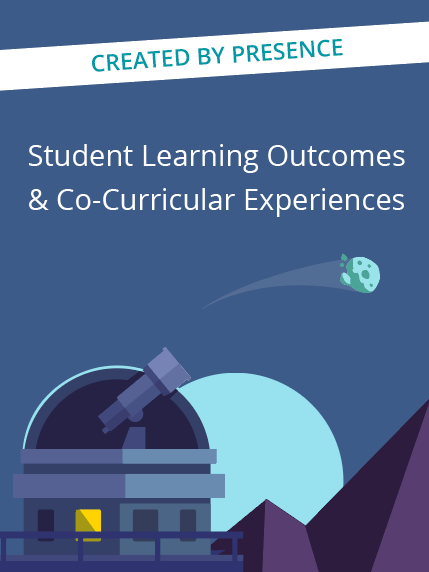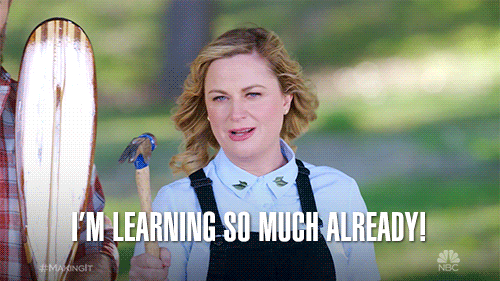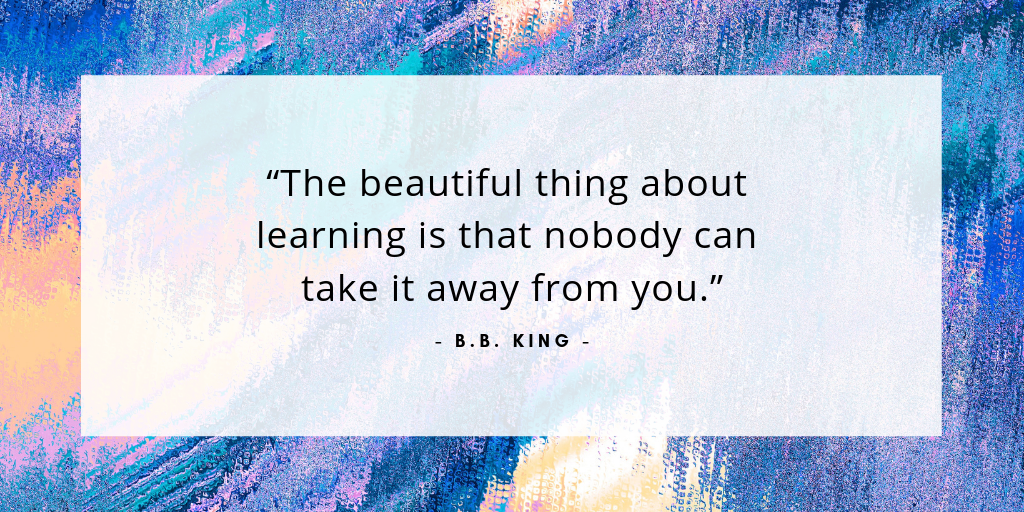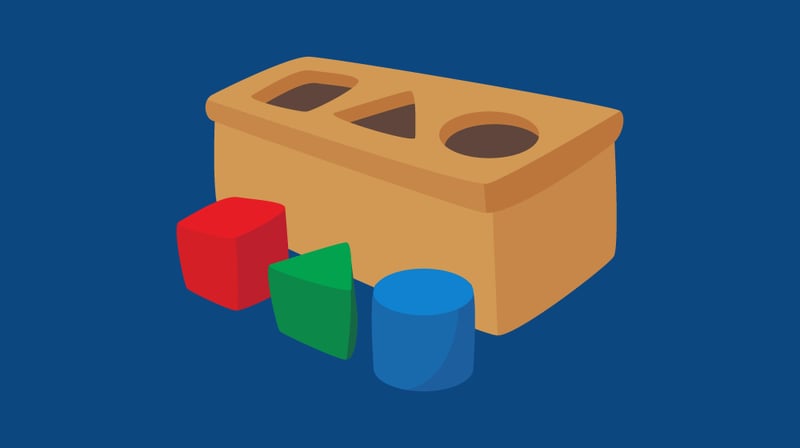Student affairs professionals know that learning can take place outside of the classroom.
We see students learning all around us: In study abroad programs, service projects, student organizations, and residence halls, just to name a few.
And this means learning can be fun! Recognizing all these different kinds of learning opportunities give us many amazing chances to switch things up for students.

Free ebook: The Complete Guide to Co-Curricular Learning
A piece-by-piece guide to planning and building a co-curricular framework for your campus Download For FreeConsider requiring student leaders to set co-curricular objectives for every one of their programs, not just a select few. After all, making programs more educational doesn’t require that every single component be a direct, obvious learning experience. Rather, focus on adding in a few components and extra touches that’ll encourage students to learn — as a bonus benefit of fun programs that build up your campus community and foster relationships.
This requires thinking of education through a broader, more creative lens. We learn new skills by doing — by creating, exploring, and interacting. And these are things you can add to just about any program.
Here are some ideas for integrating learning outcomes into campus programs.
8 Ideas
1. Add twists to common games
Gamification is, well, the name of the game. From gamifying learning pathways through engagement platforms, to giving programs game-inspired twists, you can incorporate learning in a fun, competitive way.
You can customize popular games like Apples to Apples, Jeopardy, Capture the Flag, and scavenger hunts to meet your themes and goals.

For example, you could create a card game that’s similar to Apples to Apples, but is about student life. You could host Roommate Jeopardy to test roommates’ knowledge of one another. You could design a scavenger hunt to get students oriented with your campus. Or you could play Capture the Flag using DIY LGTBQIA+ pride flags or flags representing students’ states or countries of origin.
You could also host a food competition so students can expand their cooking skills or share family recipes. Or, a college-edition of The Price is Right could help students become more familiar with the pricing of campus essentials, which, in turn, can supporting better budgeting skills.
2. Connect to academic initiatives
The academic calendar can provide great inspiration for programs! Recognize what academic challenges students are currently facing on campus and cater to their topical needs.
When you get inspired by exams season or internship application time, for example, you give students opportunities to learn timely skills that’ll help them perform their best. You can teach tips related to time management, self-care, and mindfulness, as well as ways to reach out to and connect with professors.
3. Involve experts in your community
Consider asking staff from local community organizations or across your institution to be part of your programs.
When they interact with students, they bring a refreshing perspective and expertise that your students may not be familiar with. As experts on a variety of subject matters, they can be wonderful additions to many discussions and presentations.

For example, you can invite your campus health educator to answer questions about birth control, STIs, or consent. Or you could invite a community engagement manager of a local non-profit organization to share tips on fundraising and social media marketing.
Keep in mind: Although the internet can be a great resource, it’s vital for students to also learn through in-person interactions. Meeting local professionals can also help students connect with even more local and campus resources.
4. Give students new tools
Oftentimes, the gap between knowing and doing can be bridged by a simple tool or resource. And it doesn’t have to be pricey; there are many DIY options!
If, for example, you want to encourage self-reflection, giving students journals could help. You could create your own (or have students do so)— using paper, card stock, a stapler, and other standard art supplies — to cut down on costs.
If you’re focusing on increasing your campus’s sustainability, consider ordering reusable menstrual products, metal straws, or composting buckets in bulk. Reach out to your student government to discuss the possibility of allocating funds for these products.
If you’re focusing on productivity, the Pomodoro Technique can help. Using cheap timers, rather than a smartphone app, can help students stay focused. Or you can even provide a QR code for students to download productivity apps.
5. Encourage exploration
Here’s one invaluable thing I learned anything from grade school: Field trips can be awesome ways to learn. This doesn’t have to stop with college. Exploring the nearby area is vital for helping students feel at home in their campus communities.
By taking a trip to the Saturday farmers market, a local museum, or a bowling alley, you expose and challenge students to loads of essential #adulting skills. For example, they can learn how to use the local transportation system, discover which vendors offer discounts for students, and practice communication skills. And by participating in a local pride celebration or seeing a community play, students will become more familiar with the local culture.

Students can also learn how to access the campus services that are included in their activity fees, such as renting sports equipment. New students can become more familiar with nicknames that their peers, staff, and faculty use for beloved on-campus spots.
By traveling near or far, on-campus or off, students will surely gain new perspectives.
6. Teach program planning skills
It’s great to give attendees an insider look into programming while keeping it approachable. You can tack this educational component on to any program, either in casual conversations or as a formal talking point.
Educate students about the institution’s standard processes for starting student organizations, requesting funding, and promoting programs. Doing so will help students feel more welcome and prepared to become leaders on campus, no matter what their passions or interests are.
7. Create together at a station
Accountability and encouragement can make a world of a difference in facilitating learning. If you set up a program as a station, students will follow procedures together, which makes trying new activities even more approachable.
From making stress balls, to creating healthy snacks, to assembling origami or tie-dyeing shirts, students are learning together.

8. Provide takeaways
Students get plenty of advertising materials just by being on campus. So before you add to their load, make sure your materials are clear and to the point.
This tip mixes well with the others. When you give students a new tool, such as a digital resource or a time management technique, be sure to explain the benefits of that tool, too. If you brought in an expert, ask them to bring some materials or at least share their social media handles so that students can reach out.
If you helped students identify their love languages, give them a small reference sheet that helps them understand every love language. If you built lava bead bracelets that hold essential oils, give students a list of the main uses of each of the essential oils.
Pamphlets can include quick and simple acronyms, guided processes like a recipe, or words of motivation that’ll inspire their wellness routines.

Adding educational components, and learning objectives that match them, will facilitate learning on your campus — all day, every day. No matter what they’re teaching, it’s all about experiencing the learning process together.
How do you make your programs educational? We’d love to hear your stories @themoderncampus.





